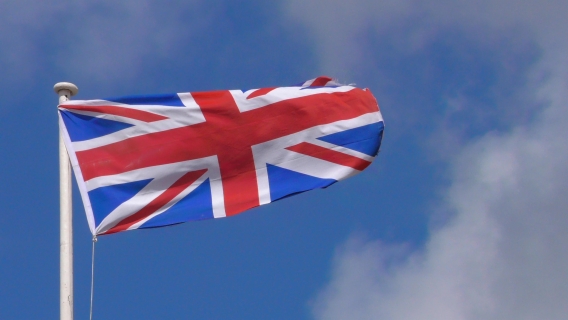
Legal Practice in Ireland
Our law degrees (LLB Bachelor of Laws (Law Plus), BA Bachelor of Arts in Law & Accounting, LLB Bachelor of Laws (Graduate Entry), and LLB Bachelor of Laws (Evening Degree)) are recognised by key professional bodies including the Law Society of Ireland and the Honourable Society of King’s Inns.
All law degree programmes offered by the School of Law cover the core subjects required for the Law Society of Ireland Final Examination, Part 1, (the entrance exams for the professional practice course required to qualify as a solicitor in Ireland) and are approved degrees for the purpose of Rule 4 of the Education Rules of the Honorable Society of King’s Inns.
See the page on qualifying as a barrister or a solicitor for more information.
Legal Practice outside of Ireland
The degrees are, moreover, internationally recognised as qualifying a candidate for admittance to a number of international bar associations including the New York Bar.
Students wishing to practice as a solicitor in Northern Ireland or England and Wales are eligible to complete a postgraduate qualification making them eligible to practice in those jurisdictions. Irish qualified solicitors are also eligible to apply to sit the California State Bar Examination.

To practise law in Canada, students with a University of Limerick LLB (graduate entry) degree, LLB in Law Plus, or BA in Law Accounting will be required to demonstrate their competence to the National Committee on Accreditation (NCA), as having a law degree in the Ireland does not mean you have a law degree in Canada.
The NCA assesses the qualifications of individuals with legal qualifications obtained outside of Canada who wish to be admitted to a common law bar in Canada. Accreditation is decided on an individual basis, taking into account the particular circumstances of that individual's educational and professional background. A key area of concern by the Committee is the qualities of grades attained during your degree. After reviewing an application, the NCA will issue an assessment result to the applicant listing the subjects and/or legal education that is required to ensure that the applicant’s legal education and training is comparable to that provided by an approved law school in Canada.
In order to obtain an NCA Certificate of Qualification, most applicants are required to demonstrate competence in a number of subjects. Applicants may demonstrate competence in one of three ways:
- You can apply to a law school in Canada to complete the remaining courses;
- You can do self study where the NCA provides a syllabus to you and you study at home. The tests are organized 4 times a year (January, May, August and October) and they will be pass/fail.
Every Law graduate who has studied outside of Canada must complete the five exams of Canadian content:
- Foundations of Canadian Law
- Canadian Criminal Law
- Canadian Constitutional Law
- Canadian Administrative Law
- Canadian Professional Responsibility
* If a student completes a 2-year graduate entry LLB and achieves a 2:2 (a 50% average, which is equivalent to a 60% average in Canada) with no individual marks under 46%, then they will have 7 exams to do: the 5 mandatory exams, plus another 2 assigned by the NCA.
* If a student completes a 3-year LLB and achieves a 2:2 (a 50% average, which is equivalent to a 60% average in Canada) with no individual modules under 46% and they already had at least 2 years at university before entering Law School, they will have 5 exams to do: the 5 mandatory exams.
* If a student completes a 3-year LLB and achieves a 2:2 (a 50% average, which is equivalent to a 60% average in Canada) with no individual modules under 46% and with less than 2 years at university before entering Law School, they will have 7 exams to do: the 5 mandatory exams, plus another 2 assigned by the NCA.
* If a student completes a 3-year Joint Honours LLB and achieves a 2:2 (a 50% average, which is equivalent to a 60% average in Canada) with no individual marks under 46% and they already had at least 2 years at university before entering Law School, they will have 7 exams to do: the 5 mandatory exams, plus another 2 assigned by the NCA.
* If a student completes a 3-year Joint Honours LLB and achieves a 2:2 (a 50% average, which is equivalent to a 60% average in Canada) with no individual modules under 46% and with less than 2 years at university before entering Law School, they will have 8-9 exams to do: the 5 mandatory exams, plus another 3-4 assigned by the NCA.
Please note the other core subjects required by the NCA are:
- Tort Law
- Contract Law
- Property Law
- Business Organisations
Most law societies in Canada accept the NCA's Certificate of Qualifications for entry to their bar admissions process. Additional requirements for the Canadian Bar are determined by the NCA, except Quebec.

Students who complete their law degree in UL are eligible to apply to sit the New York Bar exam, which entitles candidates to practise as an attorney in New York upon successful completion. Details on the application process is available on The New York State Board of Law Examiners.

In January 2018, the Bar Council of India, adopting resolution No 222/2017, recognised, under section 24(1)(c)(iv) of the Advocates Act 1961, law degrees awarded by the School of Law, University of Limerick, for the purpose of enrolment as an advocate in India subject to Bar Council of India rules.
Internationally, the School of Law, University of Limerick has secured recognition of UL Law programmes (specifically Law Plus and Law and Accounting) by the Bar Council of India thereby allowing UL law graduates to practice law in India.
University of Limerick is one of only two law schools in Ireland to offer this recognition.

If students are interested in pursuing a legal career in England and Wales on graduation from the School of Law, University of Limerick, they must apply to one of the colleges offering a Legal Practice Course (LPC). Each LPC/CPE course provider will adjudicate to what extent your law degree will receive exemptions. This is traditionally a popular route for UL law graduates with a number going into practice in the England and Wales each year. For Legal Practice Course providers see the Solicitors Regulation Authority website.
If students are interested in pursuing a legal career on graduation from the School of Law, University of Limerick, they must complete vocational training in the Institute of Professional Legal Studies, part of Queen's University in Belfast.
Our law degrees (LLB Bachelor of Laws (Law Plus), BA Bachelor of Arts in Law & Accounting, LLB Bachelor of Laws (Graduate Entry), and LLB Bachelor of Laws (Evening Degree)) are recognised law degrees for the purposes of admission to the Institute of Professional Legal Studies and qualification for the legal profession in Northern Ireland.
The Law Society of Northern Ireland has more information on this.
